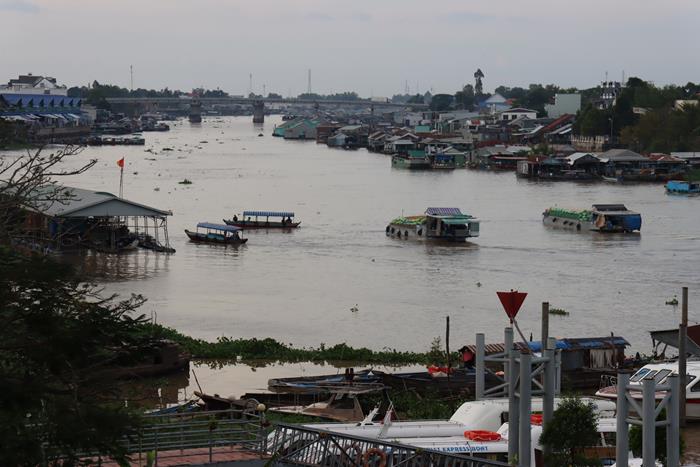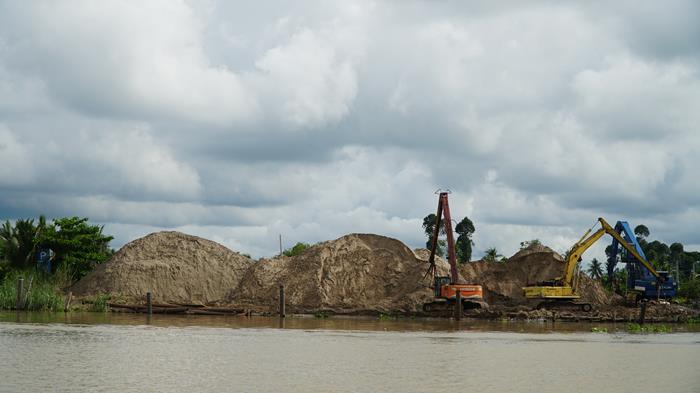Sand is one of the most highly consumed natural resources in the world. This is largely due to rapid population growth and urbanisation which drive the construction of built environments. Riverine sand is highly valued by these industries, as its unique shape and quality make it ideal for construction. However, the high demand for sand is straining river systems around the world. The Vietnamese Mekong Delta is one such example.

The Vietnamese Mekong Delta (Source: Tropical Rivers Group/Earth Observatory of Singapore)
The degradation of the Vietnamese Mekong Delta because of riverbed sand mining is central to a recent study led by Miss Rachel Lau, a Senior Research Assistant working with the Tropical Rivers Group at the Earth Observatory of Singapore (EOS). The study, published in Journal of Hydrology, sought to assess changes in the Vietnamese Mekong Delta through time.
Extensive bathymetric surveys conducted between 2017 and 2022, mapped out underground terrain across 800 km2, and showed strong evidence that sand mining is changing the riverbed morphology. The team found progressively lowered elevations of the riverbed, with the two major rivers of the river channel showing deepened incisions of 1.4 metres in Hau River and 1.3 metres in Tien River.
Through additional field surveys, the team also found evidence of sand mining-induced erosion, sometimes causing collapse of the riverbank. “Collectively, our data indicate intensification of sand mining activities in the Vietnamese Mekong Delta,” said Assistant Professor Edward Park, a Principal Investigator at EOS who leads the Tropical Rivers Group.

Sand mining activities along the Vietnamese Mekong Delta (Source: Tropical Rivers Group/Earth Observatory of Singapore)
Given the sand mining industry is as a valuable source of livelihood for the local and national economy, the team hopes to provide the data needed to develop sustainable management strategies and believes having a regulatory framework could help reduce the rate of degradation in the Vietnamese Mekong Delta. Ideally, the framework should include accurate quantification of sand mining activities, assessments of relative contribution of sand mining and the identification of sites suitable for harvesting sand.
“We hope our framework will guide sustainable management of sand resources in the Vietnamese Mekong Delta, and will help ensure its long-term stability,” says Miss Lau.
Miss Lau provides more details in an article she wrote for the Global Water Forum.